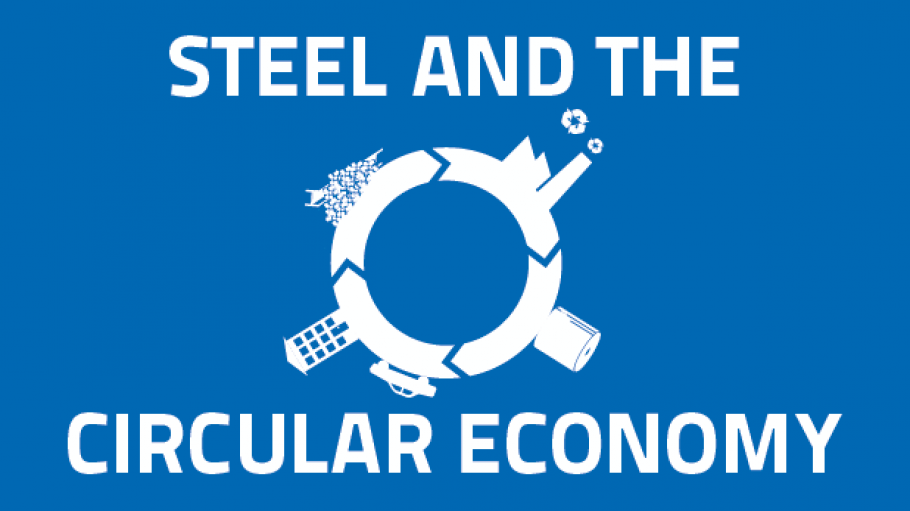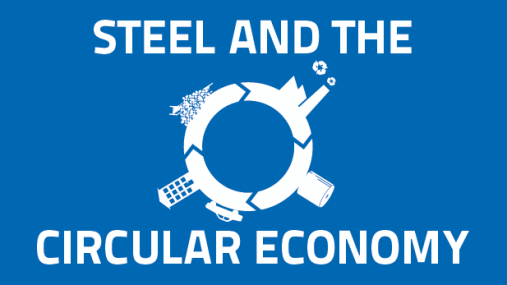
Publications » Brochures, booklets or fact-sheets » Steel and the circular economy
Steel and the circular economy
Downloads and links
Recent updates

Shaping the circular economy is an ongoing challenge. Achieving this objective is not possible without steel. The European Commission is expected to publish a package with proposals on the Circular Economy towards the end of 2015. This package will explain how the EU intends to deal with the need to transform Europe into a more competitive resource-efficient economy, addressing a range of issues, including reuse, recycling, and waste treatment.
Steel is a 100% recyclable, ‘permanent’ material, which loses none of its unique properties when properly processed. The European steel industry works hard to ensure that the steel it produces can be reused, recovered, and recycled. It also ensures that steel production’s by-products, such as slags and process, gases are put to the best possible uses.
The brochure provides recommendations to policy makers dealing with issues arising in the circular economy for the steel industry. It shows that steel can help mitigate CO2 emissions and help reduce product lifecycle emissions. Steel’s characteristic as a ‘permanent’ material means it can be easily reused and subsequently recycled in a constant loop.
To this end, the brochure proposes that the recycling definition in the EU’s waste legislation be adapted to properly meet the aspirations of the circular economy. Finally, it demonstrates the large degree to which steel production retains as much of the material created during steel production and is able to make use of its by-products.
As part of its commitment to underpinning the circular economy, the steel industry is constantly working on cleaner, resource-efficient solutions – as well as on an ever-expanding range of steel grades – ensuring that the average 170 million tonnes of steel it produces every year are ever more sustainable, useful and environmentally friendly.

Download this publication or visit associated links
Industrial Accelerator Act launches lead markets - but more is needed to support green steel “Made in Europe”
Brussels, 26 February 2026 — Europe’s steel industry has warned that the current draft Industrial Accelerator Act could direct public support for low-carbon steel to producers outside the European Union, unless lawmakers include and tighten ‘Made in Europe’ provisions.
Brussels, 24 February 2026 - Europe’s energy-intensive industries have set out a series of proposals to ensure that the EU’s upcoming Electrification Action Plan delivers on its objectives to stimulate and boost electricity consumption in industry. In a joint position paper, industries warn that persistently high electricity prices risk undermining industrial competitiveness and decarbonisation efforts. They call for a policy framework that will enable EU industry in pursuing decarbonisation and industrial competitiveness.